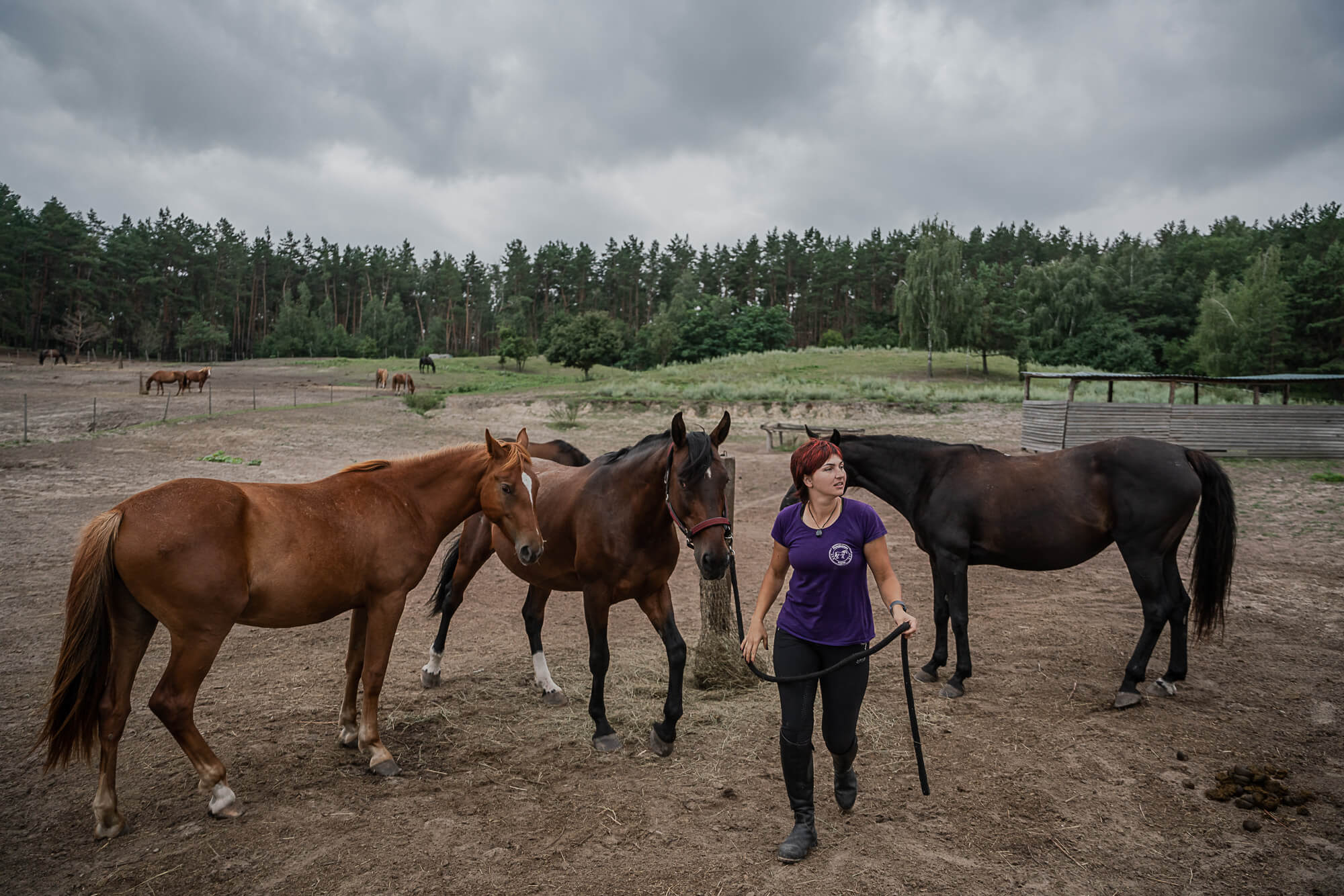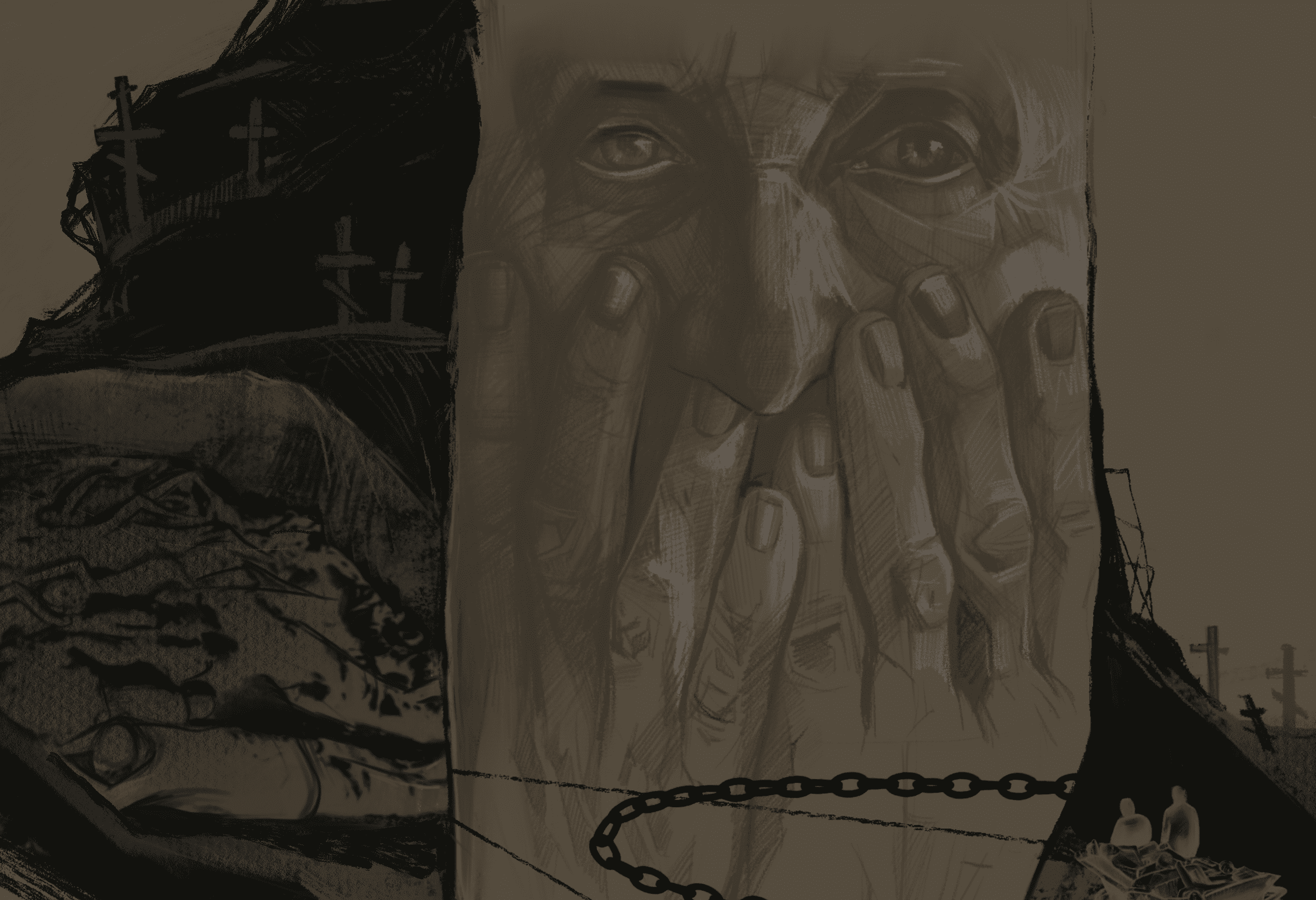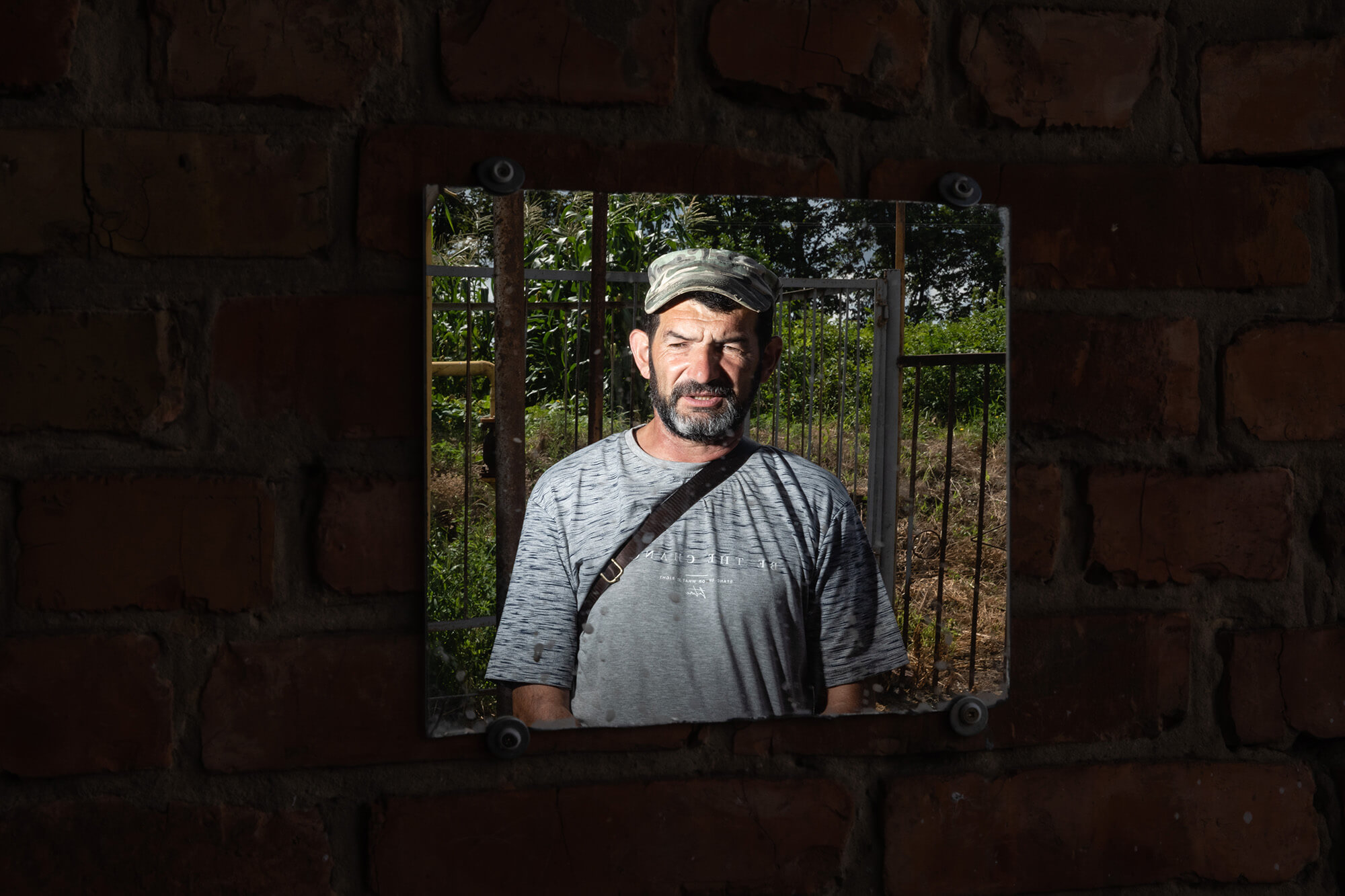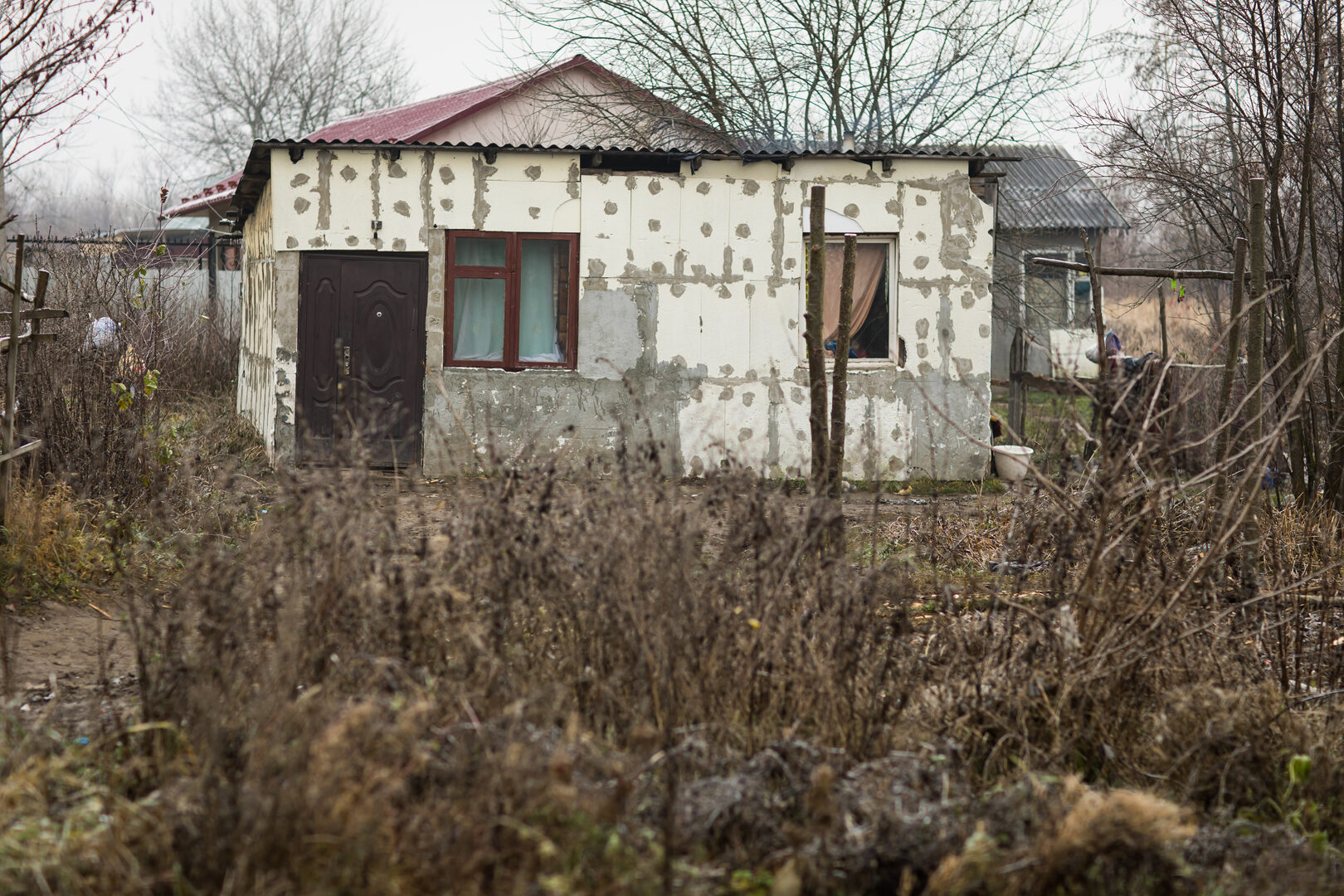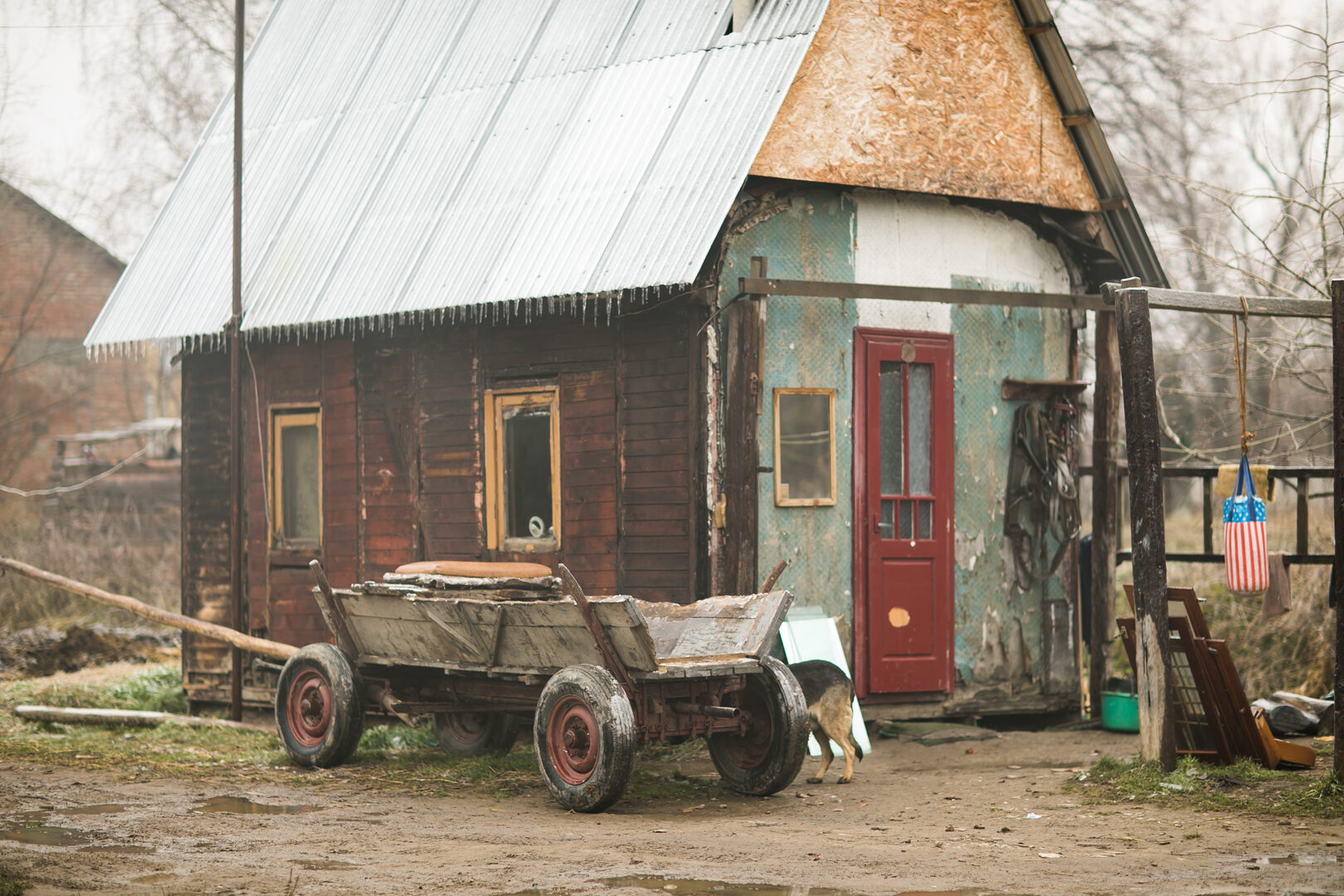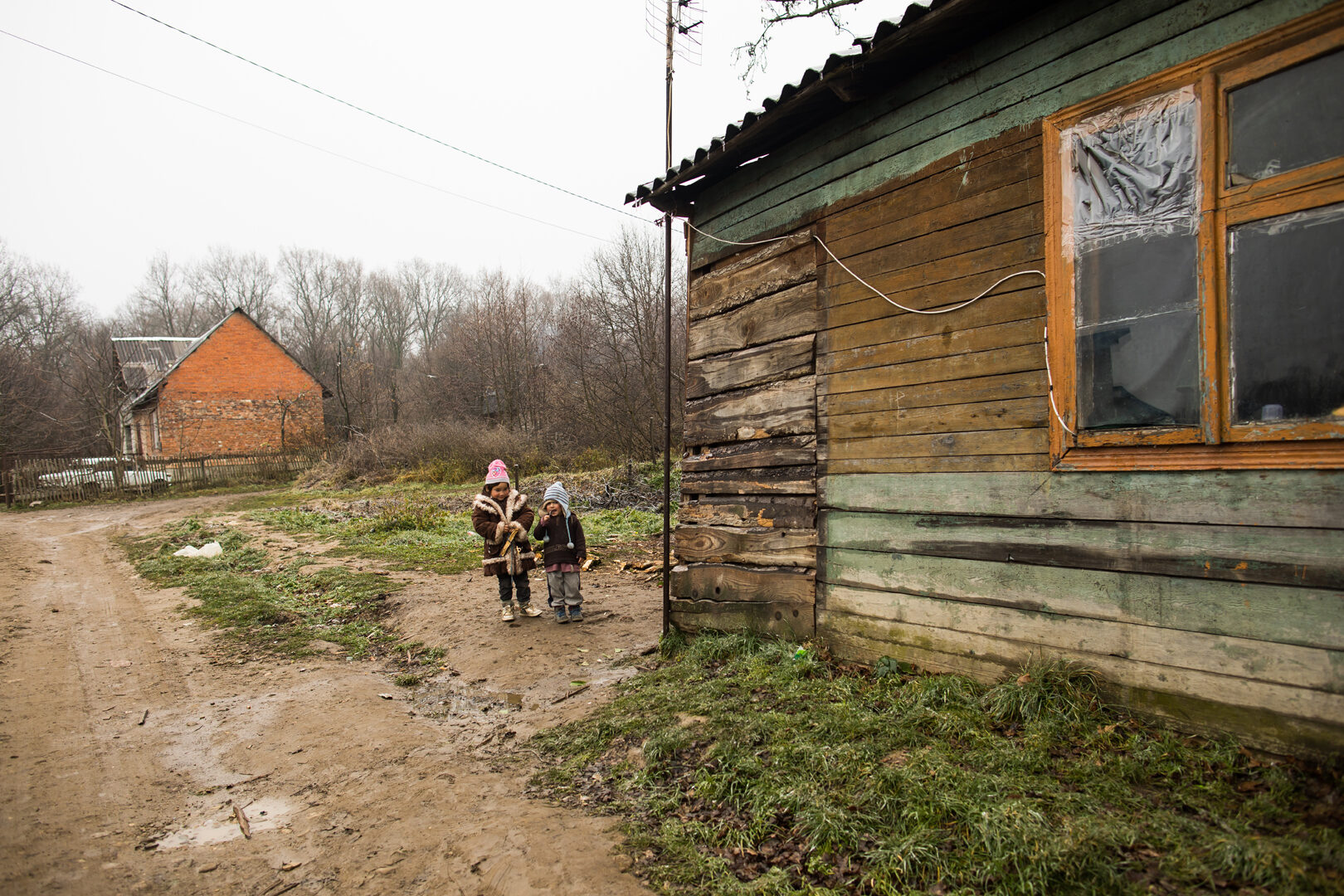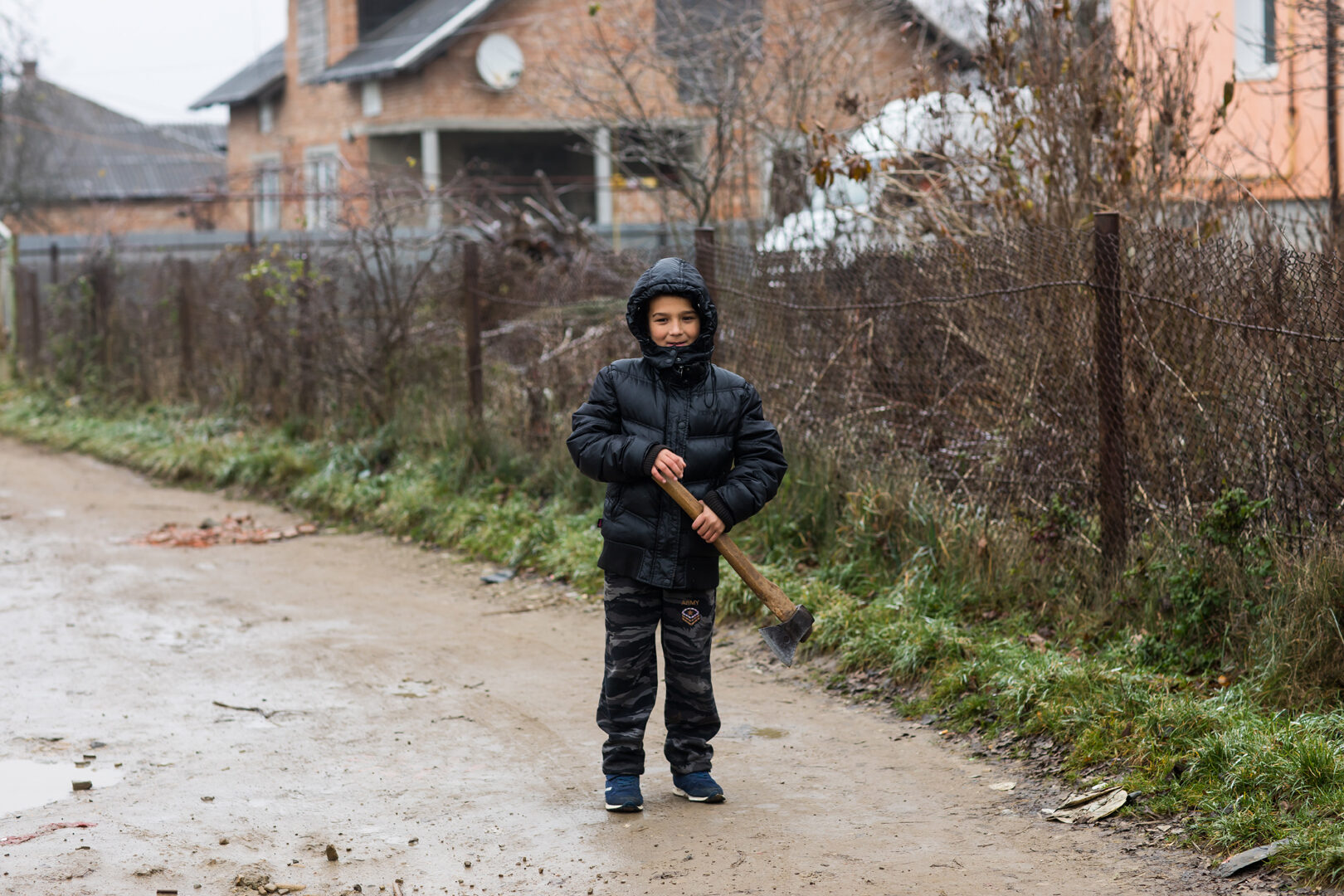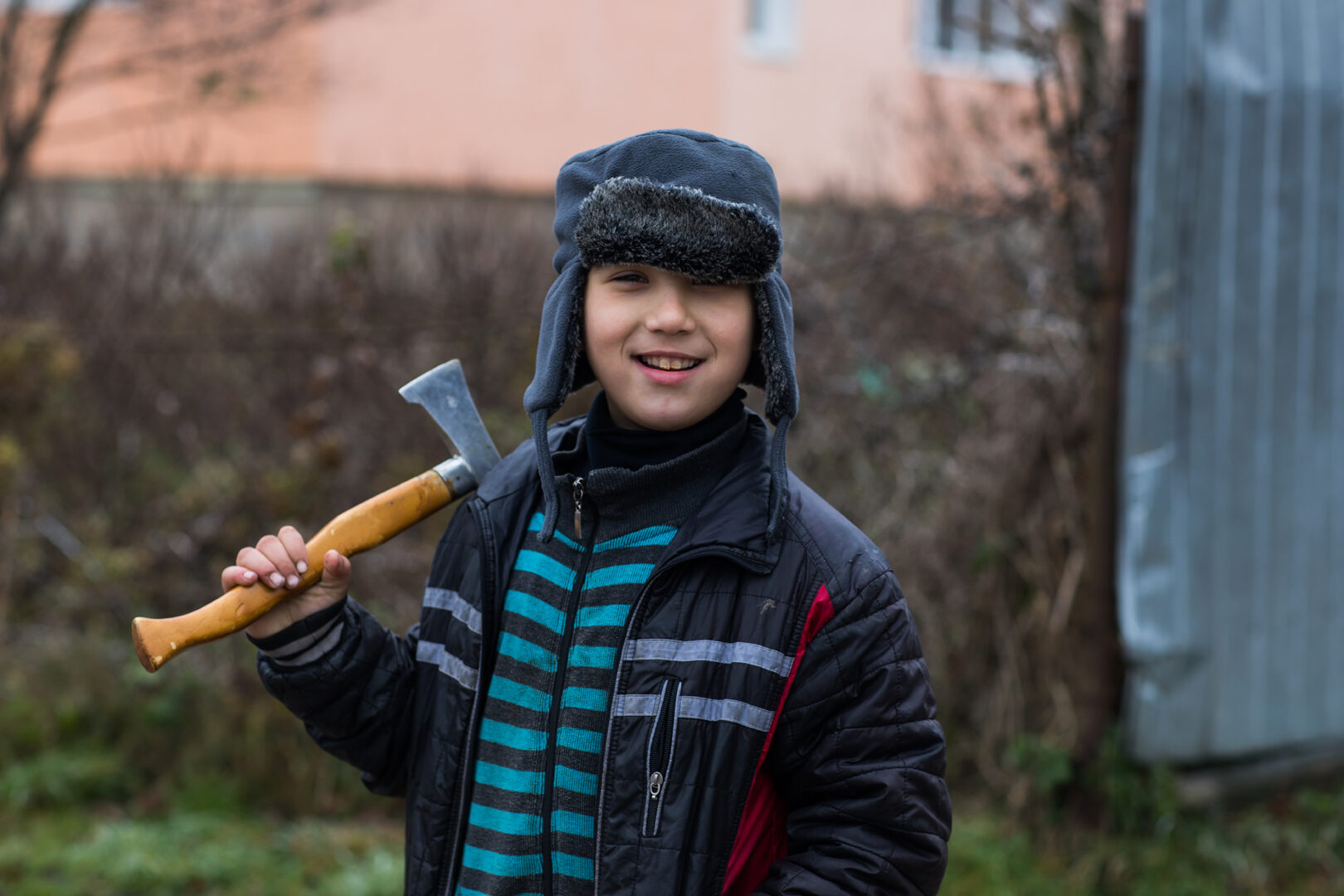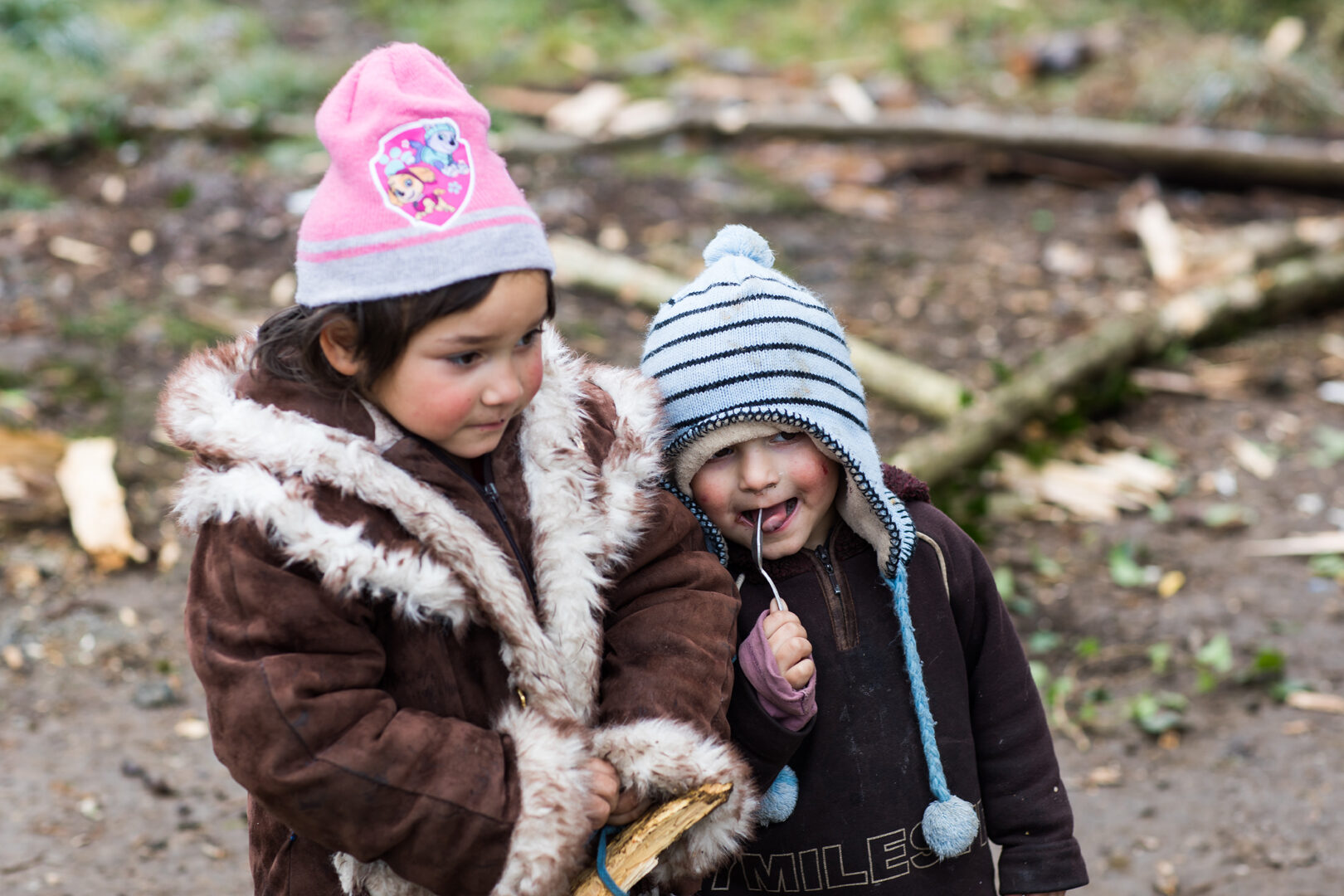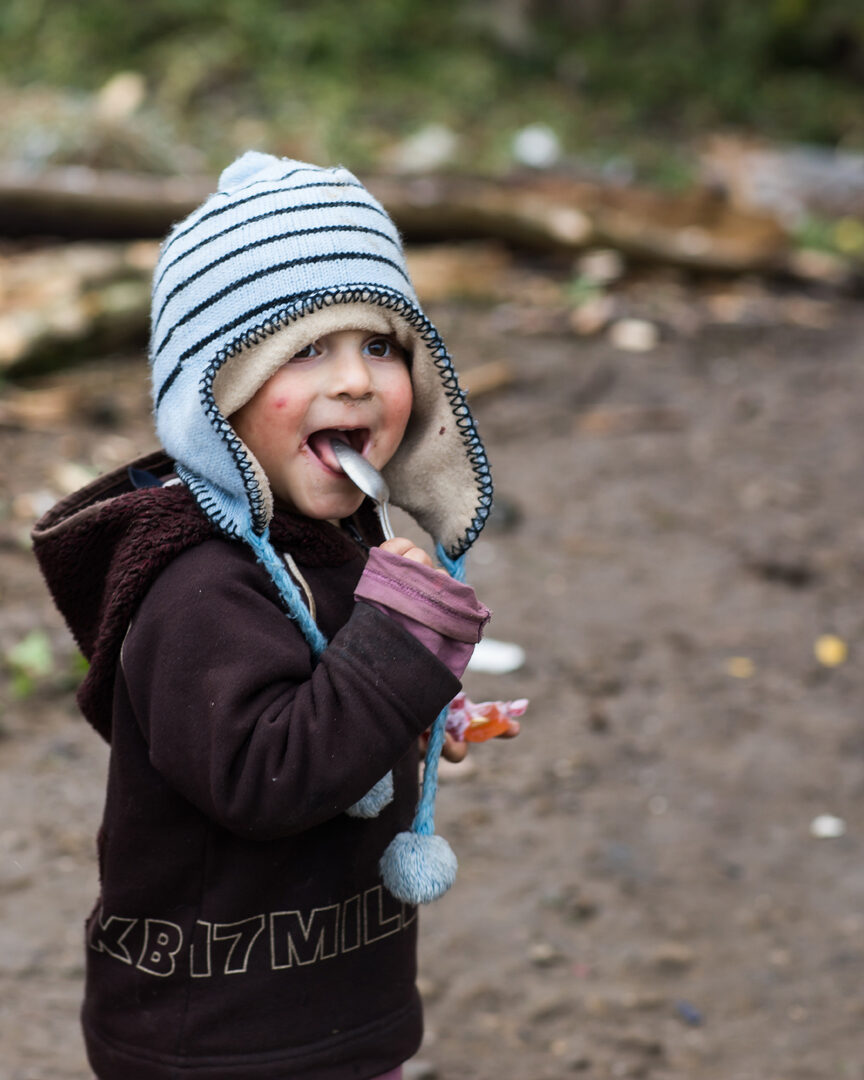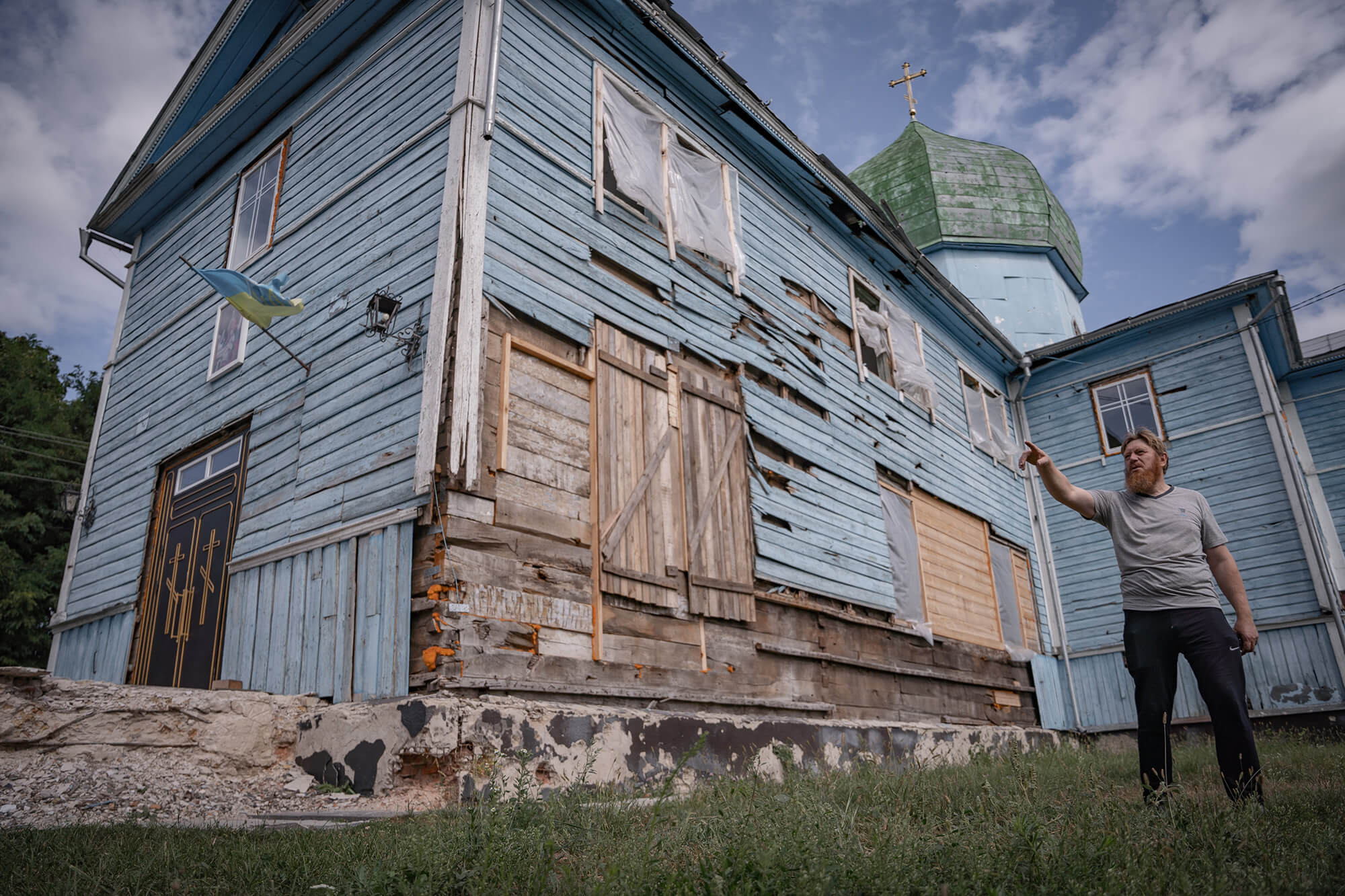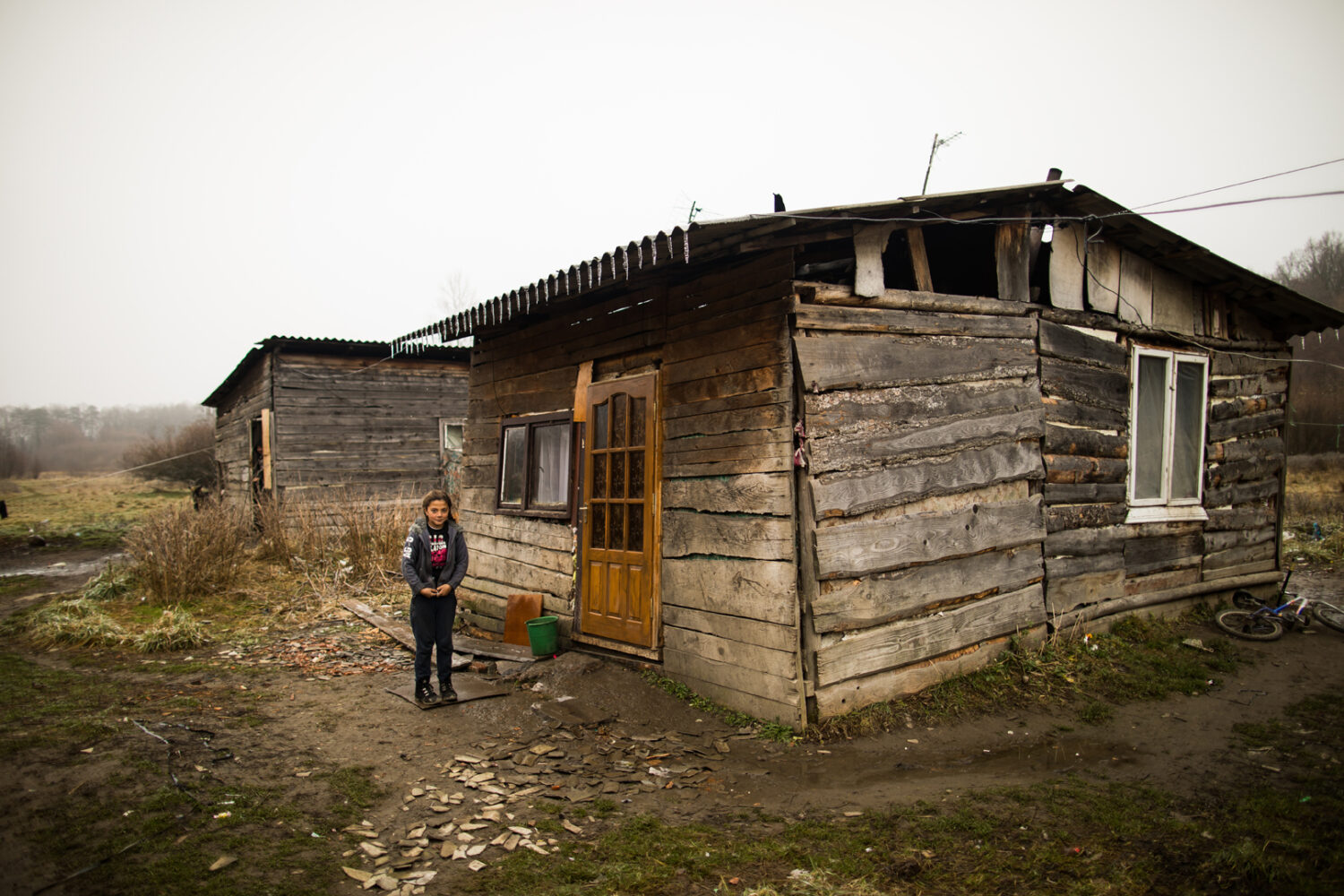
Oranges for Moses
Little ones surround you right at the doorstep of a Romani household. They look at you closely. And then start calling their names, their age and kinship to each other one by one. They put some music on a tape player and twitter something to you in Romani, even though you don’t speak a word of it. The polite elders thank you for every trifle. And often recall their relatives scattered all over the world.
This place suppresses stereotypes and rejection deeply rooted in many of us. Among these people one will even be ashamed of any proverbs describing Gypsies as manipulative or cunning. It seems like the open enmity to the Romani spreads everywhere, fed every now and then by the headlines describing them as “dangerous criminals.” The general tension sometimes comes unhinged in violent pogroms of Romani encampments, like it happened the year before last in Lviv. I wanted to get to know this community deeper, I wanted to understand it.
“When will you be back?”
“Will you write about me too?” a black-eyed boy asks me on my way out.
With a long look through the rusty fence, he watches me go.
I.
In Drohobych, with its population of 70,000, the Romani community has at least 200 families. They live in compact settlement, in a neighborhood called Mlynky far away from the center of the city. They settled down here in the 1950’s, when an oil refinery was under construction in Drohobych. The construction needed workers, especially those able to work with metal. That is why there are many blacksmiths among local residents. They mostly came from Zakarpattia, and at first lived in shacks, later starting to build their homes.
“The history of local Romani people prior to the 1950’s is almost unexplored. Some early mentions can be found in Gazeta Lwowska. Before 1952, there was no such close Romani community as we have here now,” says Bohdan Lazorak, a historian from Drohobych.
He used to live in Mlynky himself, and cannot recall any issues Ukrainians had living side by side with the Romani. Occasionally, some children would fight. He notes that among the Romani there still remains a clear hierarchy and the division into the wealthy and the poor. The wealthy reside in smaller communities of brick houses by the old mill. The poor—in small shacks along the fields.
He recalls how the Tysmenytsya river overflew its banks in 1996. The flood made a mess of things for the Romani in Mlynky—some houses were washed away, and people had to look for a new place to stay, carrying their children and possessions on their backs. Any compensation was out of the question, they just did what they could to survive.
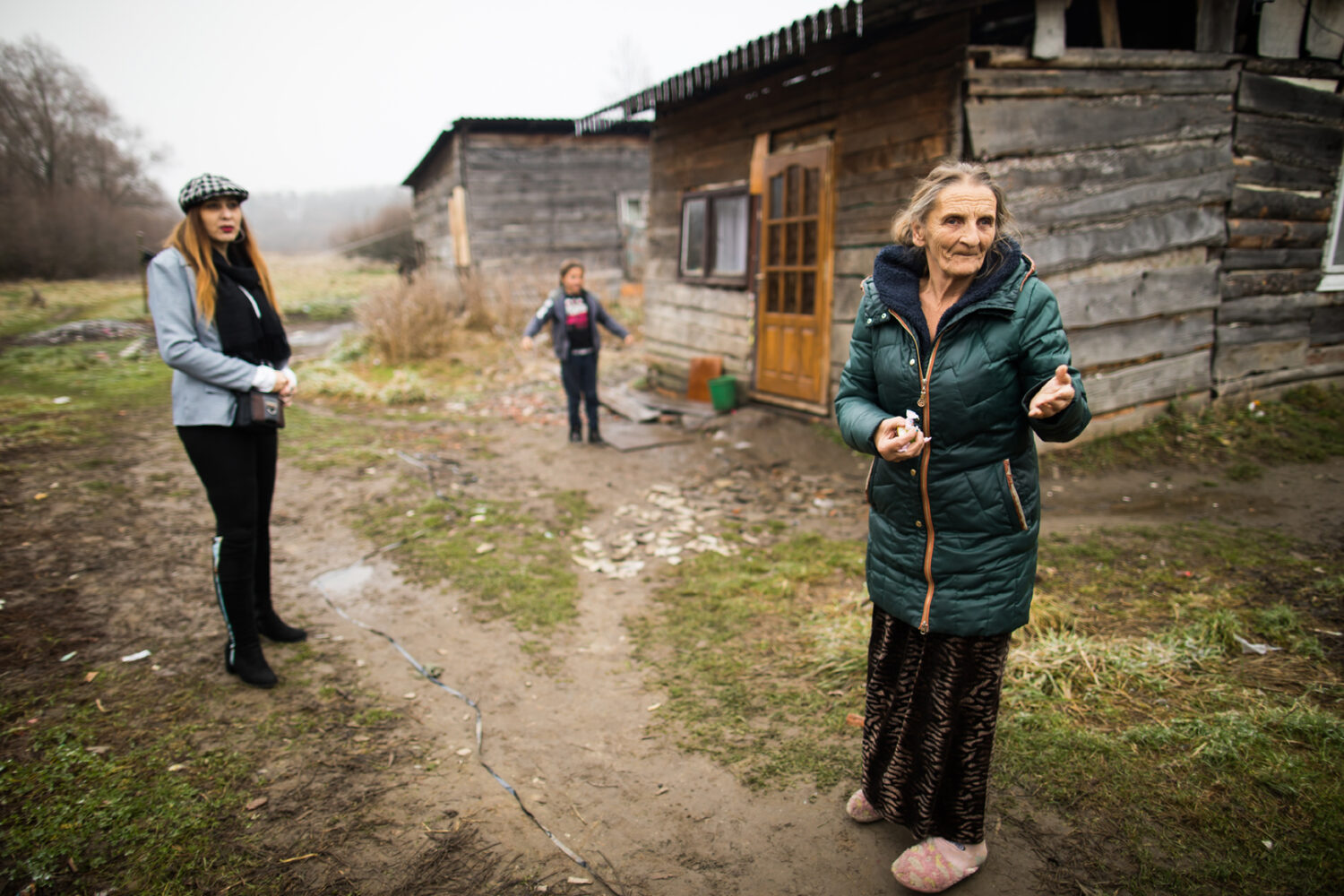
***
My insight into the lives of local Romani began with Ruslan Makula—the head of the Romani community in Drohobych responsible for their humanitarian and communication issues in the town. His family history is quite complicated, much like that of many locals.
“When they were shooting my great-grandfather during the war, my great-grandmother stood in front of him to protect him. They both died shot by one bullet,” Ruslan says. “I know that some of my distant relatives live in Poland, some are in Germany, some in Zakarpattia, but the closest ones are here, in Drohobych.”
Ruslan’s wife Albina has a beauty intrinsic to her people, and four children. She’s is unemployed and takes care of their three daughters and a son.
“I want my son to get proper education. He is about to finish school,” Ruslan says. “It would be great for him to study somewhere abroad, to gain some experience.”
Taking pictures of Romani children in the town’s main square I asked Ruslan whether I could take a few pictures in Mlynky, to see their life on the outskirts in detail. Ruslan agreed.
“Let’s do it on Sunday. I will go there after the church with my family, you can join us. We will also drop by the rom baro.”
***
Parfi Parfiyovych is frugal with words and has a grey beard. The eyes of the baro of Drohobych are dark, like the soil. He sits solemnly on a big sofa, while women and countless neighbor children swarm around him. A wide table is scattered with breadcrumbs somebody left. Next to them, there is a bowl for kneading dough and some pots. Ruslan signals to get ready for a group picture, women and children sit down around the baro in their chairs. Typically, I take black-and-white pictures, so one cannot see the rave of colors in the household and on women’s dresses. The walls are painted blue and gold. There are numerous flowerpots on the floor, and the room reminds of some botanical gardens. One of the kids turns the music on again.
In Romani “baro” means the “big man”. Indeed, in the times of nomadic life, a baro had to be a person of high authority. The baro kept watch of observance of the internal rules in the community and solved a wide range of issues, from choosing the place for the camp to judging domestic quarrels.
These days the baro remains a leader, watching over traditions, and moderating communication between the community and the town government. Yet, Parfi Parfiyovych is not eager to communicate—the man even has no cell phone. Therefore, when someone needs a piece of advice or a decision from the baro, they have to go to Mlynky and try their luck: the baro may be out.
The Romani in Drohobych speak of their late baro Ivan Pavlovych with warmth. They say he was one of their own, a local, while the current baro is a stranger. It happens rarely, but nano (uncle) Parfi got lucky: he came to the town from Khust to seek in marriage and stayed.
He says telephones are evil, so Ruslan Makula took it upon himself to arrange communication.
“Where did you come from?” Ruslan asks me.
“From nowhere,” I smile. “I am from Drohobych.”
“Oh, so you are one of us.”
ІІ.
High school #9 in Drohobych is often called a “gypsy school”—more than 50 Romani children attend it. To be honest, only 30 of them go to school on a regular basis. Almost the same number will get their diplomas, the rest will get married at the age of 13-14 and leave school: family matters are much more important.
The local headmaster, a member of the Drohobych Town Council Mykhailo Sheremeta looks after not just the learning process, but also the affairs of the heart among his students.
“Sometimes they tell me amazing love stories! And I tell them they are too young to get married! Some would even listen to me. But the rest would come back in a year or two: already divorced, they admit that I was right,” he says, his blue eyes smiling.
Mykhailo motivates Romani children and their parents to mandatory learning, at least for primary and secondary education. Quite often the obstacle is not the unwillingness to provide an education to their children, but the lack of documents or the fear of doctors. He sees the reason in the “mentality of a free people,” which discards the rules of modern society. The Romani cannot get any social aid from the government without personal IDs, so they beg.
“Some of them simply lose their IDs. Others are afraid to get one. They fear that if they get IDs they’d have to obey the law,” Mykhailo explains and recalls joining forces with the local Mayor suggesting the entire community to solve the issue of personal documents. They had to identify those needing passports. Yet, they never managed to self-organize.
The Romani themselves say they need no documents: “Our parents had no documents, so we don’t need them either.” “It is too late for me to get the passport, I am almost thirty.” Some say: “I do not want to be in the system.”
It is the same story with medical examinations mandatory for education. The Romani families are afraid of even regular contacts with physicians.
“Tell you what,” Mykhailo proudly shakes his chin. “I managed to convince at least thirty Romani families to sign contracts with family physicians!”
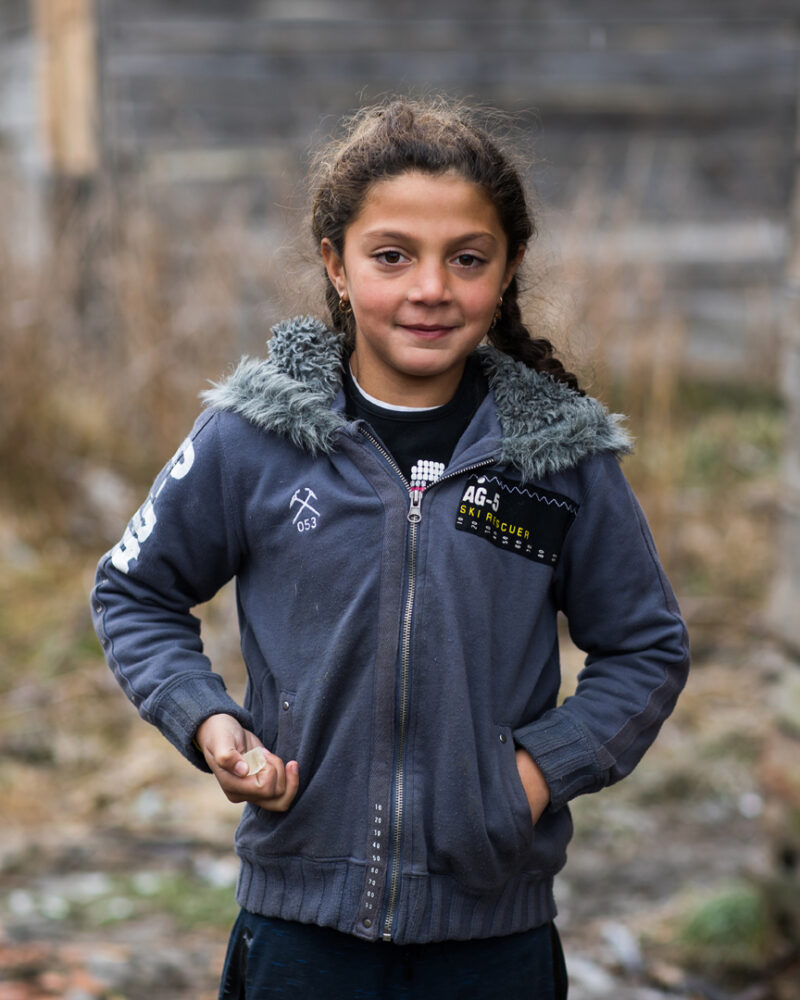
But even those of the Romani children attending the school often miss their classes and are poor students. It is hard for the first-graders to study in Ukrainian—at home they mostly speak Romani, and they go to no kindergartens. Even the older ones are behind in their studies. Sometimes, a family would go to visit their relatives in Zakarpattia and the kids would vanish from school for a few weeks or even months. When they come back, they are far behind in their studies and chuck the school for good.
Still, Mykhailo Sheremeta loses no ambitions in his support for the Romani students. He says he would like to start Romani culture, language and traditions classes. But for that he needs someone competent from their community—not just someone with a secondary education, but with knowledge of Romani history and perfect command of the language.
“I would like to convince them they are no different from Ukrainians. They have to take part in the education process at school and thereby feel they are full-fledged members of our society,” the headmaster says. “What they lack is a leader. There is the baro, and his wife, the deputy for humanitarian affairs, but they need someone to become a true leader in the community. They will not make it without one. Once they offered me to be the baro. But I can’t, I am Ukrainian, not Romani,” he adds and laughs.
One time, Romani poet Rani Romani visited Drohobych, and Mykhailo initiated a meeting with her at the school. This made it possible to bring Romani children closer to their native literature at least somehow.
“The children tug at her heartstrings. It was obvious that they lack such meetings.”
The headmaster rearranges class registers on the table, as if looking for a confirmation of his words there.
“We have a dozen of students who may achieve something. For example, there is a Romani girl in the fourth grade—she is a promising kid. She is a great student. She is even better than some Ukrainian students. I would like to encourage her to study at a university: she could study the Romani language professionally, and later we could introduce the Romani language and culture class in our school.”
While talking the headmaster recalls another student—Artur Lokatush. He says Artur is the only graduate bringing flowers to his first teacher on the first and the last day of school every year.
***
“Do you see those children begging in the center of the town?” my guide Ruslan Makula asks. “They learned it from their parents. The kids follow in their footsteps. It is better not to give them any money but buy something instead. They beg because they are desperate. Eventually, it casts suspicion on the entire community. We want to fight it and help them learn to make money. But sometimes it does not work. They continue begging.”
The school headmaster tries to fight begging in the streets, as well. He says he often talks about it with the parents.
We forbid them from begging. We say they will lose social benefits paid for their children in case they keep on begging.
“I am illiterate, who would hire me?” he often hears in reply.
Yet, there are the underprivileged Romani who never beg. Some of them try making money in commerce, others, less literate, dig horseradish for sale.
But there are also some completely different.
***
Viktoria Kurychai seems to be the only Romani in Drohobych to have her own NGO. Her grandfather and father were the baros of the Romani community, so Viktoria is still considered to be a local baroness. She says she had special duties even as a child because of that: she had to help with the documents, so she studied grammar well at school. Later she started writing articles about the Romani for a newspaper in Uzhhorod. Now Viktoria is 44, she has five grown-up children and five grandchildren. She says she intends on remaining a writer and wants to write Romani fairy tales. Viktoria has no husband and has to provide for her family. Most of the work she finds is in Poland.
“It was hard for me to be with my ex-husband. That is why I left him,” she shares reluctantly. Now, Viktoria is a female voice of the Romani community in the town. She helps with food, documents and other needs of the Romani in Mlynky.
“As you already know, most of them have no passports. Without IDs it is impossible to provide them with descent dwelling, or land plots to work on. In poverty no one understands their roles, the ways to self-organize properly, and whom to trust. We need someone to assign duties clearly.”
One of Viktoria’s daughters—young Ailin—is a florist. For her, flowers are both a part of the Romani folklore, and (primarily) a trade that feeds her. Ailin was a sickly child and had to miss classes at school, but that did not stop her—she decided to be home-schooled. Her mother helped her with homework far into the night. The girl speaks Ukrainian as if it were her native language.
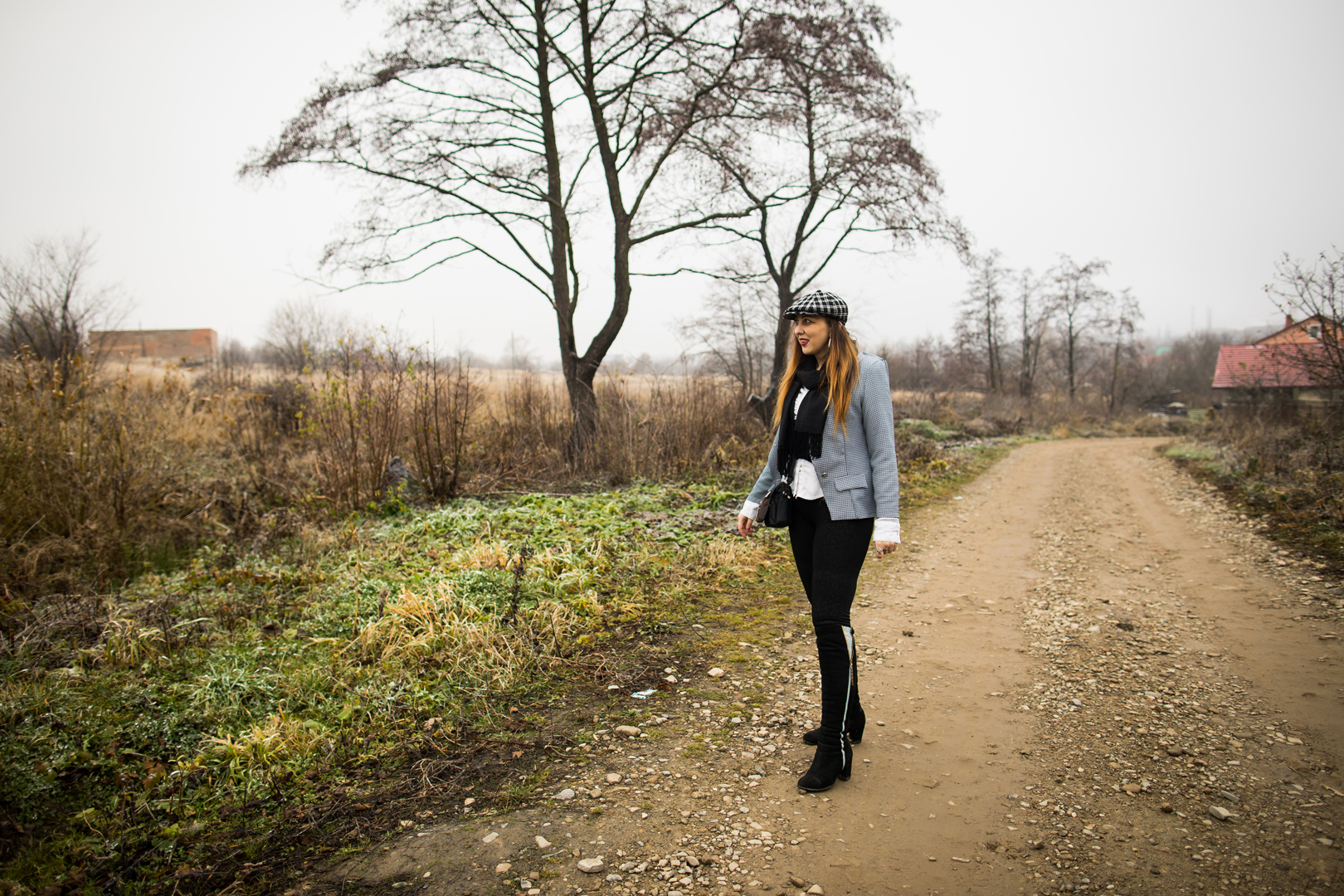
Still, Viktoria and her children are true to their traditions. For example, occasionally the head of the NGO resorts to fortune telling. She says she inherited the gift from her mother. She talks about folk traditions passionately, and tells me about November 1—the tradition of honoring the memory of the dead. On this night the Romani put tables by the tombs and graves of their loved ones, bring food, and remember their relatives.
“We must visit our dead. We behave in the cemeteries. We remember them, socialize, and sing songs. Sometimes we get sad.”
Viktoria has a flamboyant look. She has a head of dark hair, and expressive brown eyes. Her wrists are covered in jingling ornamental silver bracelets. Her earrings peek out of her hair like bunches of grapes.
“Sometimes I like wearing our national clothes—I choose long skirts, and wear flowers in my hair. I dressed like that once and walked in the city. And then I heard someone yelling: ‘Go away, gypsy!’ It was extremely unpleasant.”
ІІІ.
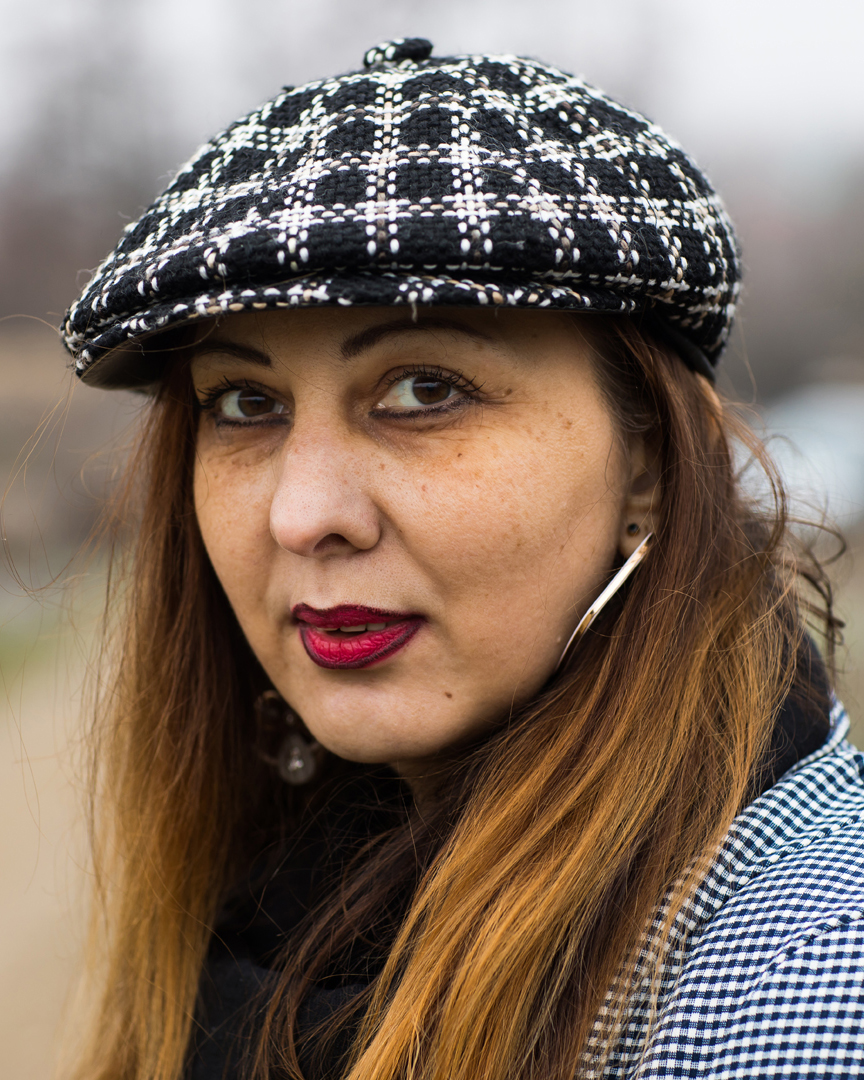
They meet a film crew of American documentary filmmakers making a movie about Ukraine’s diversity. Victoria agreed to take the journalists to the part of Mlynky where the most underprivileged Romani live.
It smells like burning leaves outside. The grey haze wraps the horizon, and the tired sun still glimmers. Its last warm rays touch your body and glow gold on your face. Cluttering children can be heard in the distance. The wooden huts lean toward each other—they are so crooked that it seems they would fall with the first gust of wind. Children peek out from behind the doors—they are dirty, in oversized sweaters with their sleeves stretching down to the ground. They run out of their shacks towards the guests, crowding them like a flock of birds.
We walk a long path. Baroness Viktoria wearing a long purple dress is leading us. Her hair is let down and falls below her shoulders. The jingle of her bracelets mixes with the voices heard somewhere nearby. At dusk, she looks like Esmeralda from Victor Hugo’s “The Hunchback of Notre-Dame.”
The smell of burnt leaves is replaced by the stench of Tysmenytsya. Dogs lying in the middle of the road don’t even bark at us—they just lazily lift their heads and plunge again into their evening nap. As we go deeper into the fields, it gets colder. The shacks are getting smaller and poorer, while the number of children is increasing.
“Do you see what I mean? There are some houses that even have no floors. Let alone any heating. Just imagine them wintering,” Viktoria says greeting everyone who runs out of those boxes to meet us. “There is a blind Romani living in one of those shacks. Two of his sons take care of him. Once, his house was burnt by Ukrainians.”
We brought three large fruit bags with us: pomegranates, oranges, bananas, apples. We give them to the kids, and they grab the fruit as fast as they can, asking for more. In a minute or two the bags are empty. Viktoria speaks Romani to them.
Women join the kids. Some of them keep the children by their side, but most let the kids go and they surround us like butterflies.
“Do you have any more oranges? For Moses. Just one!” one of the older women yells.
We only have one pomegranate left. There are no more oranges. I give little Moses the ripe red fruit.
***
“The socialization of the Romani should start with children,” ponders Volodymyr Kondzolka, head of the Drohobych City Institute. “The ninth school serves an important function for them, but it is not enough. Above all, the city should have a broader understanding of its Romani cohabitants. Who they are, what problems their communities face and what causes those problems. On the other hand, the Romani need to understand the importance of communicating not only within the community but with the town as a whole.”
Reflecting on the multiculturalism of Drohobych, it is worth remembering the words of the Polish satirist Marian Hemar, who said that Drohobych is “one and a half towns.” The author was referring to the coexistence of Ukrainian, Jewish, and Polish communities. Now there are also Crimean Tatars in the town and, of course, the old inhabitants—the Romani, who are hardly mentioned today.
“The example of Crimean Tatars may be good for the Romani. Because the Crimean Tatars, having arrived here after the occupation of the Crimea, started offering their culture to us, and it became organically entwined and mixed in with the town,” Volodymyr continues.
Why are the Romani, who have long lived in the town, almost obliterated from the local map of multiculturalism and social participation these days? Kondzolka explains that part the problem is that the Romani do not want to open up because of their way of life and their grievances with the authorities. And the insult is primarily based on the fact that society is often hostile to representatives of this nationality.
The head of the Town Institute assures: to get help and be involved in an active social life, the Romani must take the first step themselves. They have to offer something to the city community—for example, to help solve the problem of the lack of personal documents together. Become partners who are also interested in bringing back their own culture and traditions. At the end of the day, they have to prove that the Romani are not just beggars, helping the locals to believe in them.
“We cannot be the so-called missionaries and approach them without any feedback.”
For the sake of mutual dialogue between the community and the authorities the Romani of Drohobych need at least a few active people. Today, this role is partly played by baroness Viktoria, however, taking care of her own family, she often lacks the time for an active social life for the benefit of the entire community.
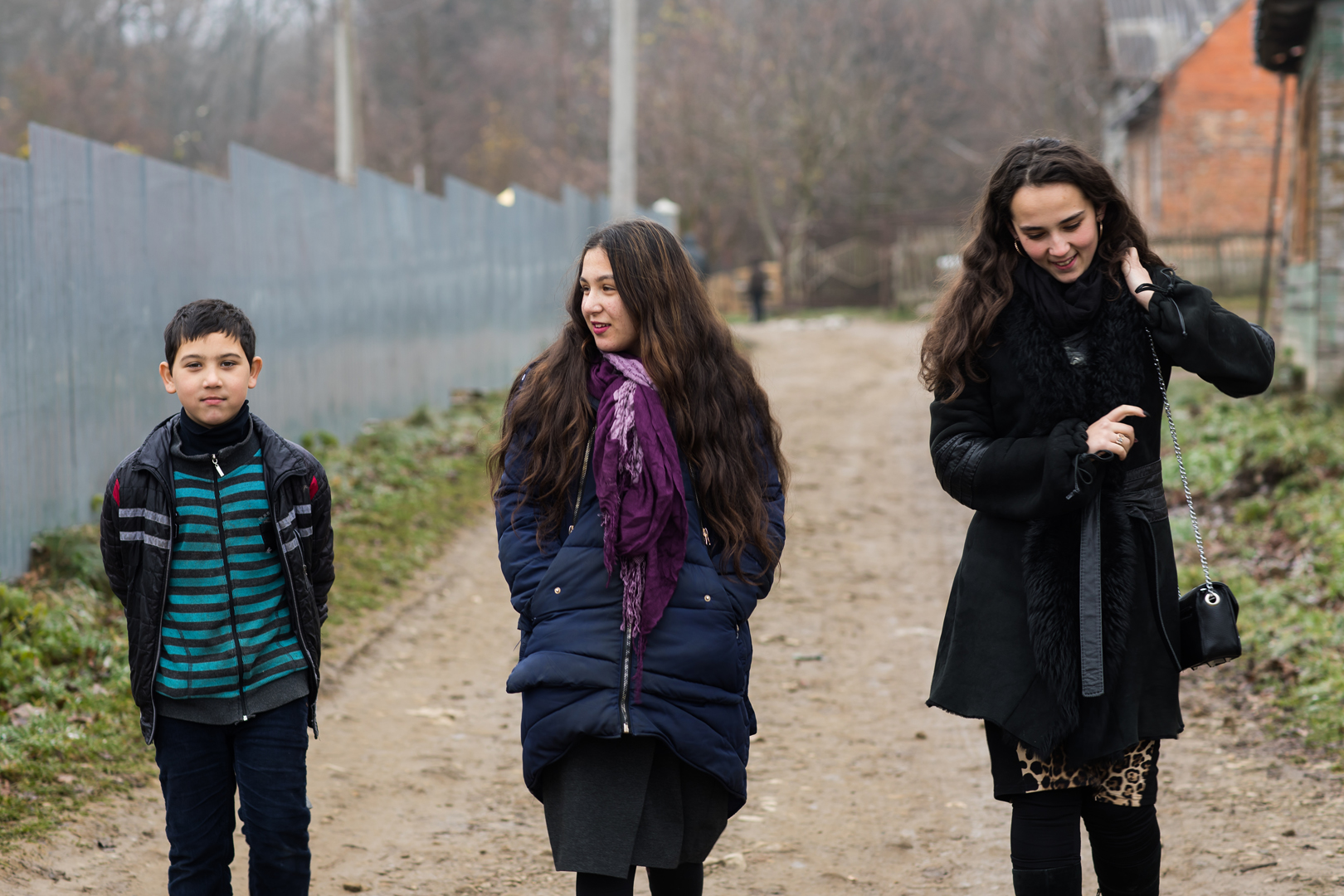
***
The sun goes to sleep. It is now completely gone. In Mlynky, the streetlamps were installed only at the beginning of the street. Accompanied by a dozen of children, we are almost groping our way to have another conversation with Ruslan. He meets us at home sitting at a wooden table, greets us and politely offers us a seat. He orders the kids to take it down, when they start gabbling like wild geese.
“We, the Romani, have a history similar to that of the Jews. After the war, we were also scattered all over the world, and now we have to look for each other. We have to look for our relatives, delve in the archives. Our people were shot and eliminated. The Jewish managed to build a strong country. And we… Perhaps, we only managed to preserve our language and traditions,” while Ruslan is talking, I hear quiet music somewhere outside: it seems some neighbor is playing the violin.
“I do not regret being born a gypsy,” Ruslan sums up. “For me, above all, it is an honor. Being a gypsy means being untouchable, therefore, it means being free.”
[This publication was created with support of the Royal Norwegian Embassy in Ukraine. The views and opinions expressed in this publication are those of the authors and do not necessarily reflect the official position of the Norwegian government.]
Have read to the end! What's next?
Next is a small request.
Building media in Ukraine is not an easy task. It requires special experience, knowledge and special resources. Literary reportage is also one of the most expensive genres of journalism. That's why we need your support.
We have no investors or "friendly politicians" - we’ve always been independent. The only dependence we would like to have is dependence on educated and caring readers. We invite you to support us on Patreon, so we could create more valuable things with your help.
Reports119
More

